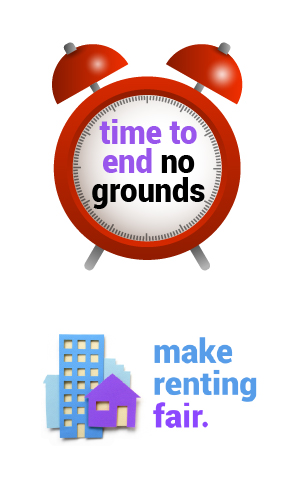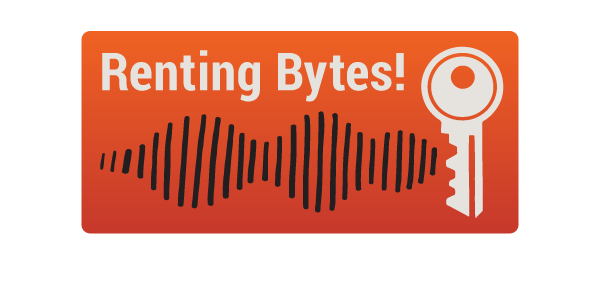80 to 55: the case for lowering the age for early allocation of social housing in NSW
Robert Mowbray • 12/11/2020
This year’s Federal Budget was a great disappointment for those concerned about the supply of social housing. Hal Pawson of City Futures Research Centre writing in The Conversation, argued that it offered nothing for social housing. However, the next NSW State Budget (to be delivered next Tuesday 17 November) promises big spending on social housing, with one budget priority being the construction and maintenance of social and affordable housing.
The Tenants’ Union of NSW is a member of ‘Ageing at the Edge’ NSW Forum. This is a coalition of organisations working together towards housing justice for older people on low incomes. The Forum has identified a number of priorities for this year’s State Budget, with recommendations in its Pre-Budget Submission including to:
- Provide 5,000 additional social housing dwellings in 2020-21 (as part of a long-term plan to increase social housing stock)
- Improve access of older people to appropriate social and affordable housing
- Establish a state-wide housing information and support service for older people
- Increase security of tenure for renters
We are hoping the coming NSW State Budget will be a significant start towards achieving the first of the above priorities. We wrote extensively about the urgent need for more social housing, as well as the insecurity renters face and how this impacts older renters in our submission on a Housing Strategy for NSW. We also outlined why we support the establishment of a specialist seniors housing support service in an earlier submission to the NSW Ageing Strategy.
Today’s blog focuses on the second priority to improve the access of older people to appropriate social and affordable housing. Ageing on the Edge believes we should lower the current priority criteria for housing relating to age to 55 years old. At the moment the qualifying age for expediting approval for priority social housing in NSW is 80 years old, or 55 years or older for an Aboriginal or Torres Strait Islander person. The policies of the NSW Department of Communities and Justice Housing (DCJ Housing) make at least two references to the importance of being aged 80 years or over in order to be given preference in allocation of social housing. The first reference to being aged 80 years is in the ‘Eligibility for Social Housing’ policy and refers to the need to be aged 80 years (or 55 years or older for an Aboriginal or Torres Strait Islander person) for preferred location to be considered when applying for priority housing. Many applicants miss out because of a ‘locational needs assessment’ which reads:
Due to the demand for housing and limited supply options in certain areas, not everyone who wants to live in a high demand area can be housed in their preferred area. Clients who may need priority housing assistance require urgent housing ahead of other people on the NSW Housing Register. Their need for secure, affordable housing in the shortest possible waiting time is their primary need. Their need for a particular area represents a secondary need that should not take precedence over their urgent need for housing.
However, the policy does provide exceptions including where an applicant can demonstrate that living in a high demand area is necessary for their physical or mental health, or where applicants are 80 years or older or for Aboriginal or Torres Strait Islander applicants where they are 55 years or older.
The second reference to being aged 80 years or older is in the ‘Managing the NSW Housing Register’ policy which lists the order in which social housing providers in NSW will house clients. The NSW Housing Register is a single list of approved clients waiting for social housing. It lists clients in order according to their required housing location, their approval category and approval date. Generally, social housing providers will house clients in the following order:
-
Clients approved for Emergency Temporary Accommodation;
-
Clients approved for priority status on the NSW Housing Register and clients approved for transfers or relocations on the grounds of under-occupancy;
-
Elderly clients (clients who are aged 80 and over, or 55 and over if Aboriginal or Torres Strait Islander);
-
Clients approved for a transfer on a priority basis, or clients being relocated for management purposes;
-
Clients approved for wait turn housing and wait turn transfer.
In NSW, older people on the waiting list for social housing need who are aged 80 years or older (or aged 55 years or older where an Aboriginal or Torres Strait Islander person) go to the top of the list as soon as their application is approved.
The Ageing on the Edge NSW Forum recommends all references to aged 80 years should be lowered to 55 years, in line with the generally used definition of 'older people' in the context of homelessness. They note the Victorian Government has recently changed their policies to ensure that people aged over 55 are eligible for priority social housing, recognising the severe impact that homelessness has on older people.
So, what is the case for lowering the age for early allocation of social housing in NSW?
We have previously highlighted how older tenants, especially women, struggling in the private rental market have become the new face of poverty. There is now significant research identifying the risk of homelessness older renters, and especially older women, face. Recent research out of the University of South Australia has put some numbers to that risk, finding around 240,000 women aged 55 or older and another 165,000 women aged 45-54 are currently at risk of homelessness. Their report was one of two launched in early August of this year at a national forum that fanned the flames for action. The other report, authored by Emma Power, University of Western Sydney, focussed on older women in the private rental market. Summarising her research for The Conversation, Emma Power wrote:
‘Older women renters are struggling in an insecure and unaffordable rental housing market. A combination of high rents and low incomes leaves many living in substandard housing and unable to afford necessities like food and energy bills ... rent increases further stress household budgets, and evictions magnify these risks. COVID-19 makes the need for reform even more urgent. Secure housing is the first line of community defence against the pandemic.’
Of course, to achieve this type of change, it is critical to increase the supply of social housing. We hope that next Tuesday's budget announcement might indicate this is starting. And of course, to take the pressure off social housing providers, the fourth of the forum’s priorities of increased security of tenure for renters would need law reform (specifically an end to 'no grounds' evictions) ... so still some way to go here!
In the meantime, a lowering of the age criteria from 80 to 55 years old for priority housing assistance would greatly assist older persons to negotiate the present housing system and avoid homelessness. The struggle continues.




